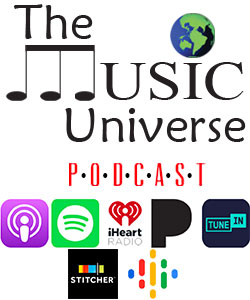When discussing technology and change, it appears that the arts are frequently overlooked compared to the technology in point spread betting, which is excellent. However, these creative fields stand to gain or lose the most in the long run.
The world of music is one creative field that appears to be continuously shaped by technological advances.
In a world where digital instruments and digital streams are the norms, it’s time to examine some of the technology that brought us to this point in music to comprehend its future better. Here are some of the most significant advancements in music technology throughout the years.
Thomas Edison is well-known for numerous accomplishments. However, he is frequently overlooked because he invented the phonograph. Briefly, the phonograph allowed people to listen to music in their homes.
Before its invention in 1877, music was typically only performed live in ballrooms or concerts for the affluent.
Consider the phonograph comparable to your first music system, record player, or MP3 player’s sound system. The phonograph was the first device capable of reproducing recorded sounds. Thus, jazz and blues became more popular.
If you’re reading this, you’ve probably guessed that you have a few synthesizers in your home studio. The synthesizer was created because people desired to create or even imitate the large sounds produced by live orchestras.
Synthesizers were once prohibitively expensive for most people to purchase, but now they are affordable, versatile musical instruments that have influenced music for decades. Here is a test that you should take. Try to recall ten non-synthesizer-using pop songs from each decade, beginning with the 1970s.
MIDI is likely something you are familiar with, even if you do not own a synthesizer. Musical Instrument Digital Interface (MIDI) is the abbreviation for Musical Instrument Digital Interface.
This technology allows users to connect to a computer or other musical device and simultaneously play multiple electronic instruments. With a midi controller, you can seamlessly switch from playing the piano to playing guitar or harp.
MIDI gave musicians access to various sounds that they would not have been able to acquire all at once or would have been prohibitively expensive to acquire.
Whether you hate it or love it, Auto-Tune altered the way music was produced in the 20th century, and its effects can still be heard today. With the Vocoder, musicians were able to alter their voice nearly as much as they could alter their instruments. Auto-tune has been utilized by everyone from Kraftwerk to Kanye West in their music. While it was initially used for effects, such as in Cher’s “Believe,” it has become the predominant tool that artists use live and in studio.
Changes in digital technology have had a significant impact on nearly every aspect of the music industry. Early digital recording hardware and software made the recording process more straightforward and less expensive. In the early 1980s, compact discs (CDs) improved sound quality for consumers while decreasing production and distribution costs.
Digital technologies helped the music industry expand, then Napster appeared. No longer needed to duplicate tapes and burn CDs to steal music? File-sharing platforms enabled users to obtain nearly any song for free and Napster — and many Metallica fans — learned that the hard way when they were sued in 2000 for unlawfully sharing their music on the platform. Their suit followed the Recording Industry Association of America (RIAA)’s litigation against Napster for enabling music piracy and copyright infringement.
The music industry’s income decreased as a result. Paid digital distribution platforms, such as iTunes, appeared shortly after Napster and altered how individuals earn money from digital downloads.
Streaming services such as Spotify have recently altered how people listen to music. Even though these platforms now account for most of the music industry’s revenue, profits have not yet reached their pre-Napster levels.
Even though the digital music revolution harmed the sales of the largest music companies, it leveled the playing field for smaller companies such as independent record labels. Due to the improvement of home recording software, musicians can now record for less money.
By utilizing digital distribution platforms, artists and small labels can also avoid larger industry-controlled distribution channels.
Social media and video streaming services enable artists to communicate directly with their fans, eliminating the need for costly PR campaigns. The digital age has expanded opportunities for musicians and music industry professionals of all stripes.
Inventive music technologies are used to create a great deal of contemporary music. Virtual instruments and MIDI technology provide musicians access to millions of sounds that can be programmed and manipulated in complex ways.
This affords a composer or producer with extensive technological knowledge and numerous new ways to create music.
Buddy Iahn founded The Music Universe when he decided to juxtapose his love of web design and music. As a lifelong drummer, he decided to take a hiatus from playing music to report it. The website began as a fun project in 2013 to one of the top independent news sites. Email: [email protected]

Copyright © 2013-2022 The Music Universe. All rights reserved. Any unauthorized duplication is a violation of applicable law. This site participates in affiliate marketing.